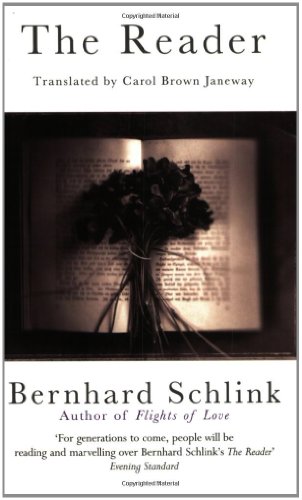
Mark Feeney, an arts writer and photography reviewer for the Boston Globe, who won the 2008 Pulitzer Prize for criticism, moderated the discussion. Schlink’s talk was sponsored by BU’s Institute for Human Scienceswith the support of the Humanities Foundation. “I think it islearned mostly by living, and daily experience,” he says. Andwhile he agrees that moral courage is a good lesson to learn, he doubtshow much of it can be taught in this didactic way. “We accused older generations of alack of moral courage and individual moral failings,” he says.

“The Holocaust has becomesmall change that is easily handed out,” he says.Īnother aspect of Holocaust remembrance that Schlink discusses ishis generation’s tendency to draw a moral lesson, rather than aninstitutional one, from the past. Overly repeated “lessons”about it in school and countless analogies to it in discussions ofmodern atrocities and current tragedies, he believes, have led to adeadened response among younger Germans. For Germans in everyfacet of society, from business to law to medicine to the arts, “thepast at one time or another was or still is our topic,” he says.īut confronting this kind of a horrific period in the history ofone’s nation is no simple task, Schlink says. Click here to watch Bernhard Schlink on BUniverse.īernhard Schlink, a lawyer by training, who took up fiction writing and is known primarily for his best-selling novel The Reader(currently a film starring Kate Winslet and Ralph Fiennes) discusseshis generation of Germans - those born at the tail end of World War IIor in the immediate postwar years - and how they approached the memoryand lessons of the Third Reich and the Holocaust.


 0 kommentar(er)
0 kommentar(er)
